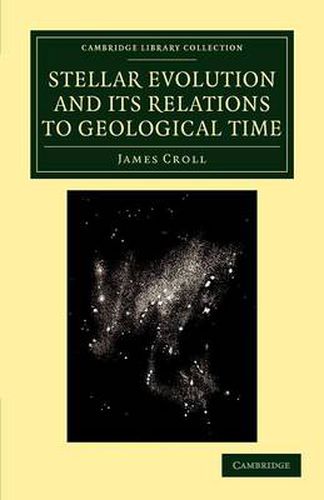Readings Newsletter
Become a Readings Member to make your shopping experience even easier.
Sign in or sign up for free!
You’re not far away from qualifying for FREE standard shipping within Australia
You’ve qualified for FREE standard shipping within Australia
The cart is loading…






James Croll (1821-90) was self-educated, but on gaining a post at the Glagow Andersonian Museum had the time to explore his academic interests. Despite his lack of formal training, he quickly became a leading light of the Scottish Royal Geological Society. Using physics, mathematics, geology and geography he explored the pressing scientific questions of the time. In this, his final book, published in 1889, Croll divides his focus between ‘the probable origin of meteorites, comets and nebulae’, the age of the sun and the impact of the pre-nebular condition of the universe on star evolution. Using both proven facts and theories, Croll explores the ideas and hypotheses then current, frequently crediting colleagues for their work, and building on it. Croll, who from humble beginnings became a Fellow of The Royal Society and of St Andrew’s University, writes in a style which makes his works accessible to a lay readership.
$9.00 standard shipping within Australia
FREE standard shipping within Australia for orders over $100.00
Express & International shipping calculated at checkout
James Croll (1821-90) was self-educated, but on gaining a post at the Glagow Andersonian Museum had the time to explore his academic interests. Despite his lack of formal training, he quickly became a leading light of the Scottish Royal Geological Society. Using physics, mathematics, geology and geography he explored the pressing scientific questions of the time. In this, his final book, published in 1889, Croll divides his focus between ‘the probable origin of meteorites, comets and nebulae’, the age of the sun and the impact of the pre-nebular condition of the universe on star evolution. Using both proven facts and theories, Croll explores the ideas and hypotheses then current, frequently crediting colleagues for their work, and building on it. Croll, who from humble beginnings became a Fellow of The Royal Society and of St Andrew’s University, writes in a style which makes his works accessible to a lay readership.